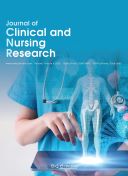Abstract
Objective: To study the mechanism of action and therapeutic effect of modified Qiwei Baishu powder in diabetic patients. Methods: From January 2021 to January 2022, 80 diabetic patients were recruited in our study and divided into two groups by the random number table method. Group A was treated with modified Qiwei Baishu powder, whereas group B was treated with western medicine. The therapeutic effect, traditional Chinese medicine (TCM) syndrome score, blood sugar level, and incidence of adverse reaction were compared between the two groups. Result: The therapeutic effect in group A was significantly higher than that in group B (P < 0.05); the TCM syndrome scores of group A were significantly lower than those of group B (P < 0.05); the fasting blood glucose (FBG), 2 hour-postprandial blood glucose (PBG), and glycosylated hemoglobin (HbA1c) levels of group A were significantly lower than those of group B (P < 0.05); the incidence of adverse reaction in group A was significantly lower than that in group B (P < 0.05). Conclusion: On the basis of western medicine, the addition of modified Qiwei Baishu powder can maintain stable blood sugar levels in patients and alleviate diabetic symptoms; thus, it is not only effective, but also safe for clinical use in diabetes.
References
Wu H, Sun B, Zhao X, et al., 2022, Treating 50 Cases of Diabetes with Coronary Heart Disease by Taohong Siwu Decoction and Qiwei Baizhu Powder. Hunan Journal of Traditional Chinese Medicine, 38(10): 17–21.
Wang W, Guo L, 2022, Theoretical Discussion on Qiwei Baishu Powder Improving Insulin Resistance in Type 2 Diabetes by Regulating Intestinal Flora. Western Traditional Chinese Medicine, 35(06): 56–59.
Qian Y, 2022, Clinical Observation of Modified Qiwei Baizhu Powder in Improving Insulin Resistance of Type 2 Diabetes with Spleen Deficiency. Shandong University of Traditional Chinese Medicine, 5(11): 33–34.
Diabetes Branch of Chinese Medical Association, 2021, Guidelines for Prevention and Treatment of Type 2 Diabetes in China (2020 Edition). Chinese Journal of Endocrinology and Metabolism, 37(4): 311–398.
Rao W, 2022, Clinical Effect of Qiwei Baishu Powder on the Treatment of Patients with Spleen Deficiency Type Gestational Diabetes Mellitus. Diabetes New World, 25(03): 71–74.
Lin W, 2022, Effect Analysis of Modified Qiwei Baishu Powder as an Adjuvant Treatment of Diabetes Mellitus with Both Qi and Yin Deficiency. New World of Diabetes, 25(02): 96–98 + 110.
Huang L, 2019, Effects of Acupuncture and Moxibustion Combined with Modified Qiwei Baizhu Powder on Nerve Conduction Function and TCM Syndrome Scores in Patients with Diabetic Peripheral Neuropathy. Jilin Traditional Chinese Medicine, 39(12): 1659–1663.
Tang W, 2021, Clinical Observation of Qiwei Baizhu San Combined with Buyang Huanwu Decoction Combined with Metformin in the Treatment of Obese Type 2 Diabetes Mellitus. Journal of Practical Chinese Medicine, 37(02): 249–250.
Lin Y, Li K, Li H, 2020, Effects of Intradermal Acupuncture Combined with Qiwei Baishu Powder on Blood Sugar, Serum Human Adiponectin and Apelin in Centrally Obese Diabetic Patients. World Journal of Integrated Traditional Chinese and Western Medicine, 15(05): 936–938 + 942.
Wang Q, Wang S, Jiang S, et al., 2022, Efficacy and Mechanism of Qiwei Baishu Powder Combined with Acupuncture in Treating Type 2 Diabetes Mellitus with Hyperlipidemia (Qi and Yin Deficiency Type). Journal of Liaoning University of Traditional Chinese Medicine, 24(04): 163–167.
